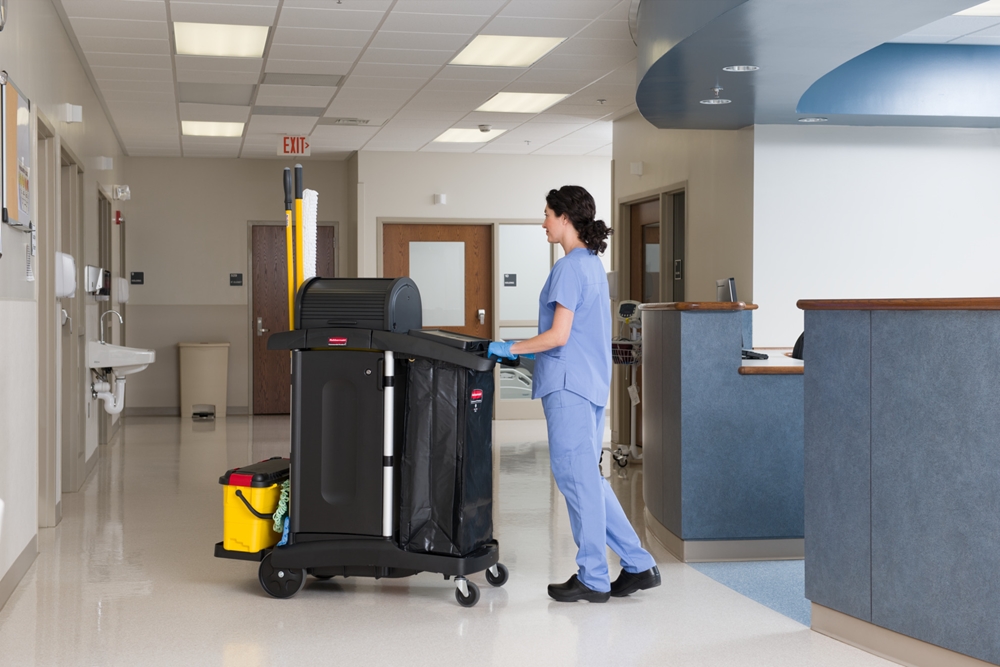
Across Australia, healthcare providers have adopted deep cleaning techniques to reduce patient exposure to contagions. These practises involve identifying high-touch surfaces and increasing the frequency with which they are cleaned. In addition, deep cleaning requires commercial-grade equipment that kills and removes dangerous bacteria and viruses.
The same deep cleaning methodologies can be applied to common areas such as patient waiting rooms. In addition to cleaning more frequently, staff may utilise equipment such as ultra-low volume foggers to neutralise contagions after the wait room closes for the day. Regular sanitation of high-touch surfaces creates a more hygienic environment where patients can feel safe waiting for their GP.
Improving environmental hygiene with disposable microfibre
As the name suggests, microfibre cloth is made from incredibly fine fibres. At a microscopic level, microfibre appears much slimmer and less bulky than traditional cotton fibre. While this may not seem like much of a difference when viewed with the naked eye, these smaller fibres actually behave much differently than traditional solutions.
Cotton cloths tend to push germs and dirt around on surfaces. This means that cleaners need to rely on harsh chemicals to kill bacteria. However, the dead bacteria often get left behind and become food for another fast-growing population of microorganisms.
Microfibre cloths actually pick up dirt, dust and bacteria — removing small particles and contagions from the surface. This means that disposable microfibre leaves surfaces clean and hygienic, reducing the risk of spreading infection through skin-to-surface contact. Rubbermaid HYGEN disposable microfibre cloths are an ideal solution for deep-cleaning healthcare environments.
Disposable microfibre is just one modern cleaning tool that can fight contagions that spread disease. Rubbermaid Commercial Products understands the essential role played by cleaning staff equipped with effective healthcare cleaning products. To learn more about how durable, high-quality cleaning solutions can protect healthcare staff and patients, check out our product catalogue today.

Limiting patient exposure to contagious diseases
Prior to the COVID-19 pandemic, Australians saw their general practitioner (GP) 6.1 times per year, according to a government survey. As the pandemic changes the way people approach interactions with their GPs and specialist providers, it is important to understand how to limit the risk of community-spread infection in healthcare environments. Social distancing mandates have forced healthcare providers to develop new ways to protect patient health.
Healthcare stakeholders have moved to reduce the time patients spend waiting to see their doctor. For example, patients may not be allowed to bring someone with them to their appointment. Fewer seats and 1.5 metres between chairs also accommodate social distancing guidance. In addition, patients may be required to wait in their car until it’s time to see their provider. The push toward greater implementation of telehealth services has also increased during the pandemic.
Though Australia already had a robust telehealth network prior to the COVID-19 crisis, digital services have evolved and expanded at a rapid pace in 2020. According to the Department of Health, more than 4.3 million health and medical services have been delivered via telehealth to over 3 million Australians since the beginning of the pandemic. While these steps have done much to reduce the potential for spreading the novel coronavirus, healthcare providers still depend on well-equipped cleaning staff to maintain environmental hygiene.